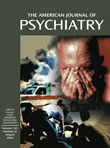Clozapine-Induced Acute Interstitial Nephritis
Mr. A was a healthy 33-year-old man with paranoid schizophrenia who was transferred to our institution after the onset of recurrent hallucinations. He was stabilized at another institution with 1500 mg of valproic acid at bedtime, 80 mg b.i.d. of ziprasidone, and 800 mg t.i.d. of gabapentin. His medications were subsequently changed to 500 mg b.i.d. of valproic acid, 800 mg at bedtime of gabapentin and 400 mg in the morning, and 2 mg of risperidone at bedtime. Minimal improvement was noted, and on the third week, 25 mg of clozapine at bedtime was started and titrated to 100 mg. At the initiation of treatment, all of Mr. A’s laboratory blood work had been normal. One week later, his eosinophil count was slightly elevated at 6.1% (absolute count=0.49 10×9/liter). On the second week after the introduction of clozapine, he developed nausea, vomiting, a sore throat, diarrhea, a fever of 104°F, and a positive urinalysis (leukocyte esterase, WBC casts, 2+ protein, 1+ hemoglobin, 10–50 WBCs). Trimethoprim-sulfamethoxazole was started to treat a suspected urinary tract infection, and laboratory samples drawn at that time showed a sodium level of 132 mEq/liter, a BUN level of 87 mg/dl, and a creatinine level of 9.7 mg/dl. Mr. A was diagnosed with acute renal failure and transferred to a tertiary care center.At that point, all medications were stopped except for valproic acid, and Mr. A was given intravenous hydration. An ultrasound of his kidneys showed bilateral echogenic kidneys without hydronephrosis, moderate renal disease, and glomerular nephritis. Mr. A maintained good urine output throughout his hospital stay. Over 1 week, he was monitored, and his WBC rose from 12.5 to 22.3 (10×9/liter), his eosinophil count rose to 11% (absolute count=2.5 10×9/liter), but his BUN and creatinine levels decreased to 76 mg/dl and 4.1 mg/dl, respectively, signaling at least partial return of renal function. He was discharged after a short hospital stay without further significant treatment.
Reference
Information & Authors
Information
Published In
History
Authors
Metrics & Citations
Metrics
Citations
Export Citations
If you have the appropriate software installed, you can download article citation data to the citation manager of your choice. Simply select your manager software from the list below and click Download.
For more information or tips please see 'Downloading to a citation manager' in the Help menu.
View Options
View options
PDF/EPUB
View PDF/EPUBGet Access
Login options
Already a subscriber? Access your subscription through your login credentials or your institution for full access to this article.
Personal login Institutional Login Open Athens loginNot a subscriber?
PsychiatryOnline subscription options offer access to the DSM-5-TR® library, books, journals, CME, and patient resources. This all-in-one virtual library provides psychiatrists and mental health professionals with key resources for diagnosis, treatment, research, and professional development.
Need more help? PsychiatryOnline Customer Service may be reached by emailing [email protected] or by calling 800-368-5777 (in the U.S.) or 703-907-7322 (outside the U.S.).

